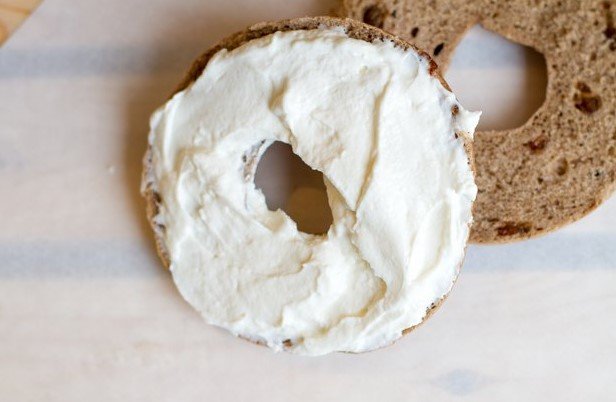Coconut is a delicious and nutritious ingredient that adds a tropical touch to a variety of dishes. However, as with any food, it has a shelf life and can expire if not stored properly. Shredded coconut, in particular, is a pantry staple for many, but once the expiration date passes, the question arises: will expired shredded coconut make you sick? In this article, we will explore the truth about coconut shelf life and answer this question once and for all.
What is Shredded Coconut?
Shredded coconut is a product made from dried coconut meat that has been grated or shredded into small, fine pieces. It is often used as a garnish or ingredient in many desserts and other dishes.
Shredded coconut is widely available in grocery stores worldwide and is often packaged in sealed bags or containers. The packaging helps in prolonging the shelf life of shredded coconut by protecting it from moisture and other harmful conditions.
The shelf life of shredded coconut depends on several factors, such as its packaging, storage conditions, and use of preservatives. Here are some important points to keep in mind:
- Shredded coconut usually comes in airtight packaging to prevent exposure to air, moisture, and contaminants. The packaging should have a clear expiration date or a “best by” date, which indicates the time when the quality and flavor of the product start to decline. Expired shredded coconut doesn’t mean that it’s automatically bad, but it may not taste or smell as fresh as before.
- Shredded coconut can last up to six months or more if stored in a cool, dry, and dark place, such as a pantry or a kitchen cabinet. However, if exposed to heat, humidity, and light, shredded coconut can deteriorate quickly and attract insects or bacteria. Therefore, you should avoid storing shredded coconut near the stove, the dishwasher, or the window, and instead, keep it in a sealed container or a resealable bag.
- Some shredded coconut products may contain preservatives, such as sulfites or sorbates, to extend their shelf life and prevent spoilage. While these preservatives are generally considered safe, some people may be allergic to sulfites or prefer to avoid artificial additives.
Does Shredded Coconut Expire?
Yes, shredded coconut can expire and go bad over time. Shredded coconut has an expiry date, and it is advisable to check the packaging for information on the best before date.
Expired shredded coconut can have an unusual smell, taste, and appearance. If you notice any of these changes, it means that the product has gone bad and should be discarded.
Will Expired Shredded Coconut Make You Sick?
Expired shredded coconut can make you sick if consumed. Eating expired shredded coconut can lead to food poisoning or cause other common symptoms such as nausea, vomiting, and diarrhea.
Expired shredded coconut can also contain harmful bacteria that can cause serious health issues, especially if eaten in large quantities. Therefore, it is essential to pay attention to the expiry date of shredded coconut and avoid consuming it if it is expired or shows signs of spoilage.
Signs of Expired Shredded Coconut
Now that you know the basics of shredded coconut shelf life, let’s talk about how to tell if shredded coconut has expired. While the expiration date is a helpful guide, it’s not always accurate or truthful, especially if the product has been stored improperly or opened before. Here are some signs to look for when checking if shredded coconut is still good to use:
- Off smell and taste: One of the obvious signs of expired shredded coconut is a rancid or sour smell and taste. If the shredded coconut smells like spoiled milk or has a bitter aftertaste, it’s best to discard it. Eating rancid shredded coconut may cause digestive issues, such as nausea, vomiting, diarrhea, or stomach cramps.
- Color change: Another indicator of expired shredded coconut is a change in color. If the shredded coconut turns yellow, brown, or gray, it may have oxidized and developed mold or bacteria. Do not eat discolored shredded coconut as it may harbor harmful microorganisms that can cause food poisoning.
- Clumping and moisture: Expired shredded coconut may also clump together or become moist, especially if exposed to air or humidity. Clumpy and moist shredded coconut can spoil faster than dry and loose shredded coconut and may contain yeast, fungi, or bacteria. Check the texture and consistency of the shredded coconut before using it, and if it feels sticky or soggy, throw it away.

Risks of Eating Expired Shredded Coconut
Now that you know how to identify expired shredded coconut, you may wonder what the risks of eating it are. While not all expired shredded coconut is necessarily harmful, eating food that’s gone bad can have negative effects on your health. Here are some potential risks of eating expired shredded coconut:
- Food poisoning: Eating expired shredded coconut may expose you to harmful microorganisms, such as salmonella, E. coli, or listeria, that can cause food poisoning. Common symptoms of food poisoning include fever, chills, headache, body aches, and diarrhea. In severe cases, food poisoning can lead to dehydration, hospitalization, or even death, especially in vulnerable populations such as infants, elderly, and immunocompromised individuals.
- Allergic reactions: If you’re allergic to coconut or sulfites, eating expired shredded coconut may trigger allergic reactions, such as hives, itching, swelling, or anaphylaxis. Even if you’re not allergic to coconut, eating rancid or moldy shredded coconut may irritate your digestive system and cause discomfort or pain.
- Nutrient loss: Expired shredded coconut may lose some of its nutrients, such as fiber, vitamins, and minerals, over time. While this may not be a risk in itself, eating expired shredded coconut as your primary source of coconut may lead to nutrient deficiencies and health problems in the long run.
How to Store Shredded Coconut Properly?
To prevent the risks of eating expired shredded coconut, it’s crucial to store it properly in the first place. Here are some tips on how to store shredded coconut correctly:
- Check the expiration date and buy shredded coconut from a reputable brand that uses fresh and high-quality ingredients.
- Store shredded coconut in an airtight container or resealable bag, and keep it in a cool, dry, and dark place, away from heat, humidity, and light.
- Use shredded coconut within the recommended time frame, and don’t keep it for too long, even if it still smells and tastes okay.
- Avoid freezing shredded coconut, as it can alter its texture and flavor and reduce its shelf life.
- Consider making your shredded coconut by grating fresh coconut meat, if possible, as it’s healthier, tastier, and has a shorter shelf life.
Navigating the Coconut Product Market
Lastly, if you’re a coconut enthusiast, you may wonder which coconut products are safe and healthy to consume. While shredded coconut is a versatile and convenient option, there are many other coconut products on the market that offer different benefits and drawbacks. Here are some examples:
- Coconut milk: Coconut milk is a liquid extracted from grated coconut meat and often used in curries, smoothies, and desserts. It’s rich in healthy fats, such as medium-chain triglycerides (MCTs), and can support digestion, metabolism, and immunity. However, some coconut milk products may contain added sugars, thickeners, or emulsifiers that reduce their nutritional value and increase their calorie count.
- Coconut oil: Coconut oil is a semi-solid oil made from pressed coconut meat and commonly used in cooking, baking, and skincare. It’s high in MCTs and may offer anti-inflammatory, antioxidant, and antimicrobial properties. However, coconut oil is also rich in saturated fats, which may increase cholesterol levels and the risk of heart disease if consumed in excess.
- Coconut water: Coconut water is a clear liquid found inside young green coconuts and praised for its hydration, electrolytes, and vitamins. It’s low in calories and sugar and may be a healthier alternative to sports drinks or sugary beverages. However, some coconut water products may have added sugars or flavors that negate their health benefits and make them taste less natural.
Conclusion:
To sum up, will expired shredded coconut make you sick? While it’s not a definitive yes or no answer, it’s safe to say that eating expired shredded coconut can pose health risks and should be avoided whenever possible. To prevent the risks of food poisoning, allergic reactions, and nutrient loss, make sure to store shredded coconut properly, check its expiration date, and discard it if it shows signs of spoilage.
FAQ
1. How long can you keep shredded coconut in the pantry?
Shredded coconut can last up to six months or more if stored in a cool, dry, and dark place, such as a pantry or a kitchen cabinet. It’s important to keep it away from heat, humidity, and light, and to make sure it’s stored in an airtight container or resealable bag.
2. Can you freeze shredded coconut?
While you technically can freeze shredded coconut, it’s not recommended. Freezing can alter the texture and flavor of shredded coconut and reduce its shelf life. It’s better to store shredded coconut in the pantry or the fridge and use it within the recommended time frame.
3. Are there any health benefits to consuming shredded coconut?
Shredded coconut is a good source of dietary fiber, healthy fats, and micronutrients such as iron and manganese. It can support digestion, metabolism, and immunity, and may help reduce inflammation and lower cholesterol levels.
4. What other coconut products are there besides shredded coconut?
There are many other coconut products on the market, including coconut oil, coconut milk, coconut water, coconut flour, and coconut sugar. Each product has its benefits and drawbacks, depending on the processing method, the ingredients used, and the intended use.
5. How can you tell if shredded coconut has gone bad?
Expired shredded coconut can have an unusual smell, taste, and appearance. Signs of spoilage include a rancid or sour smell and taste, discolored or moldy appearance, clumping and moisture, and off texture and consistency.















